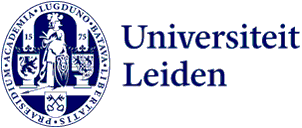Book presentation
Book presentation: 'Stop the Machines: The Rise of Anti-Technology Extremism'
- Date
- Wednesday 29 October 2025
- Time
- Address
-
Schouwburgstraat
Schouwburgstraat 2
2511 VA The Hague - Room
- Living Lab
The research group Terrorism and Political Violence, part of Leiden University’s Institute of Security and Global Affairs (ISGA) invites you to a book presentation on ‘Anti-Technology Extremism’ by Dr. Mauro Lubrano (University of Bath). Please see below for details and a link to register.

Programme
15.45: Doors open & registration
16.00: Word of welcome by Professor Bart Schuurman
16.05: Book presentation by Dr. Mauro Lubrano
16.45: Q&A with the audience
17.00: End of event
About the book
As the world enters a new era of rapid technological change, a new form of extremism is framing technology itself as the root of society’s problems and a target for violence. In the first in-depth study of anti-technology violence, Mauro Lubrano examines how this emerging extremism has developed around the world.
He identifies three main strands driving the anti-technology movement: insurrectionary anarchists, who see the technological system as a tool of elite control; eco-extremists, who argue that saving the planet requires dismantling technology; and eco-fascists, who combine environmentalism with violent, far-right ideologies. While their motivations differ, these groups share a common goal: dismantling the technological system and eradicating technology..
Anti-technology extremism draws strength from its flexibility. It can be adapted to support a range of causes, from anti-elite class struggles to environmental defence, and even white supremacist ideas. As concerns about AI safety, climate breakdown, and political instability continue to deepen, this phenomenon may escalate. Though currently fragmented and operating on the margins, anti-technology extremism could become a major driver of political violence.
This research highlights the need to view anti-technology extremism not merely as an intellectual curiosity, but as a potential security concern. It serves as a timely warning to monitor and analyse these developments before they escalate further.
